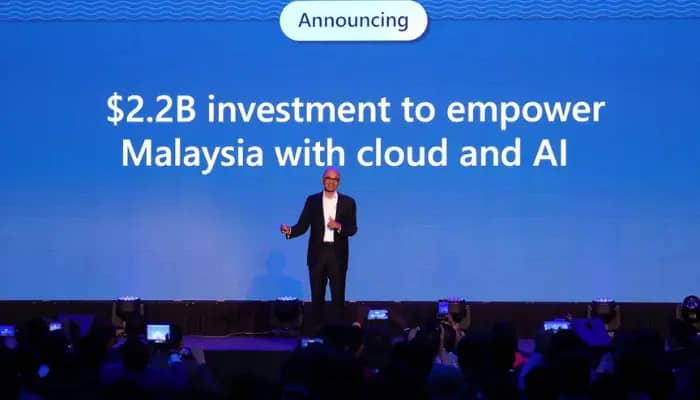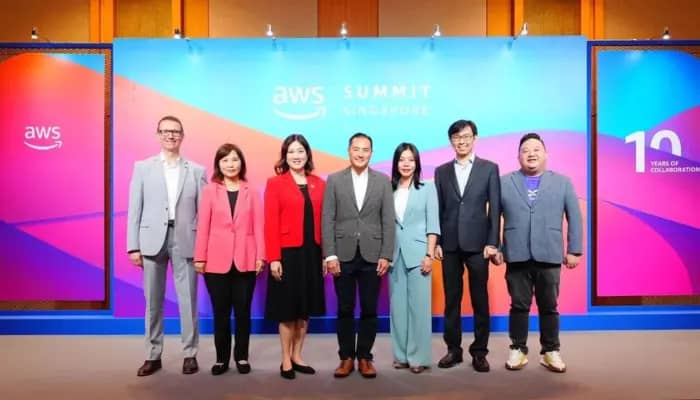Malaysia – Microsoft has announced that it will invest US$2.2 billion over the next four years to promote Malaysia’s digital transformation. The investment demonstrates Microsoft’s commitment to developing Malaysia as a hub for cloud computing and related technologies like generative AI. This project seeks to increase the nation’s productivity, competitiveness, resilience, and economic growth.
The investment in digital infrastructure continues Microsoft’s April 2021 initiative, Bersama Malaysia (Together with Malaysia), which aims to promote inclusive economic growth. This project included preparations to set up the company’s first datacenter area in the nation.
The disclosed investment places Microsoft in a position to handle Malaysia’s growing need for cloud computing services. Furthermore, it enables Malaysia to capitalise on the significant economic and productivity opportunities presented by AI technology.
Microsoft revealed a broader pledge to provide 2.5 million people in the member states of the Association of Southeast Asian Nations (ASEAN) with chances for AI skill development by 2025. Governments, nonprofit organisations, corporate entities, and communities throughout Malaysia, Indonesia, the Philippines, Thailand, and Vietnam will all work together to give this training and support.
The commitment builds on Microsoft’s recent skilling efforts in Malaysia, including its success in providing digital skills to over 1.53 million Malaysians as part of the Bersama Malaysia project.
Microsoft intends to continue working with the Malaysian government on a number of projects aimed at strengthening the country’s digital environment. Among these efforts is the establishment of a national AI Center of Excellence in collaboration with Malaysia’s Ministry of Digital Agency. The objective is to ensure compliance with AI governance and regulatory standards while fostering the deployment of AI across critical industries.
In order to strengthen Malaysia’s cybersecurity capabilities, Microsoft will continue to work with the National Cyber Security Agency of Malaysia (NACSA) as part of the Perisai Siber (Cyber Shield) program. Through security evaluations and capacity building, our alliance will put the public sector’s security and resilience first.
Furthermore, Microsoft wants to support NACSA as it develops the next stage of the country’s cybersecurity strategy, serving as NACSA’s principal agency for cybersecurity matters in Malaysia. The two organisations will also engage in more extensive cooperation to develop cybersecurity knowledge via programs such as Microsoft’s Ready4AI&Security initiative.
Microsoft continues to support the growth of Malaysia’s developer community by launching new projects like AI Odyssey. This initiative aims to assist 2,000 Malaysian developers in becoming AI subject matter experts by acquiring new skills and obtaining Microsoft credentials.
Speaking about the investment, Satya Nadella, chairman and CEO, Microsoft, said, “We are committed to supporting Malaysia’s AI transformation and ensure it benefits all Malaysians. Our investments in digital infrastructure and skilling will help Malaysian businesses, communities, and developers apply the latest technology to drive inclusive economic growth and innovation across the country.”
Meanwhile, YB Senator Tengku Datuk Seri Utama Zafrul Abdul Aziz, Malaysia’s Minister of Investment, Trade & Industry, said, “Microsoft’s 32-year presence in Malaysia showcases a deep partnership built on trust. Indeed, Malaysia’s position as a vibrant tech investment destination is increasingly being recognized by world-recognized names due to our well-established semiconductor ecosystem, underscored by our value proposition that ‘this is where global starts’.”
He added, “Microsoft’s development of essential cloud and AI infrastructure, together with AI skilling opportunities, will significantly enhance Malaysia’s digital capacity and further elevate our position in the global tech landscape. Together with Microsoft, we look forward to creating more opportunities for our SMEs and better-paying jobs for our people, as we ride the AI revolution to fast-track Malaysia’s digitally empowered growth journey.”
Andrea Della Mattea, president of Microsoft ASEAN, expressed, “We are honoured to collaborate with the government to support their National AI Framework, which enhances the country’s global competitiveness. This strategic emphasis on AI not only boosts economic growth but also promotes inclusivity by bridging the digital divide and ensuring everyone gets a seat at the table, so every Malaysian can thrive in this new digital world. As a result, Malaysia is steadily establishing itself as a regional hub for digital innovation and smart technologies, embodying a forward-thinking approach that prioritises sustainable development and societal well-being through digital transformation.”





